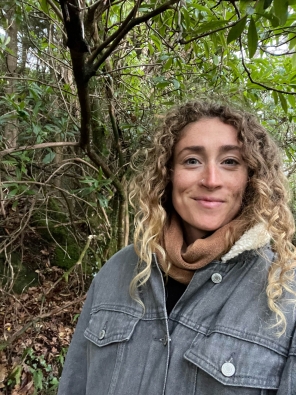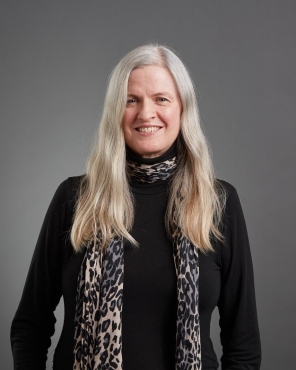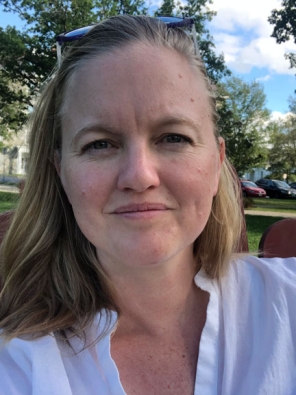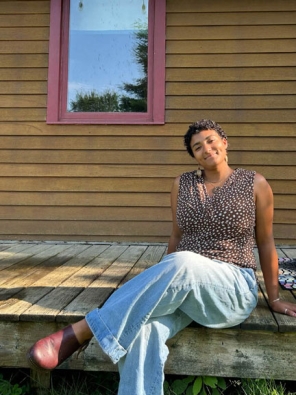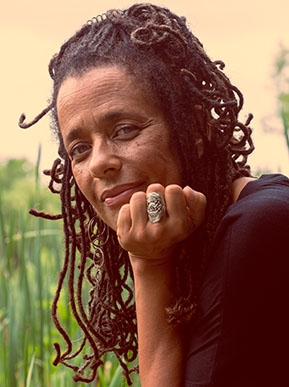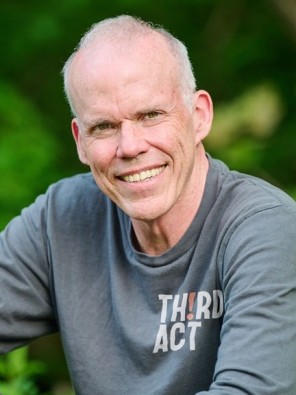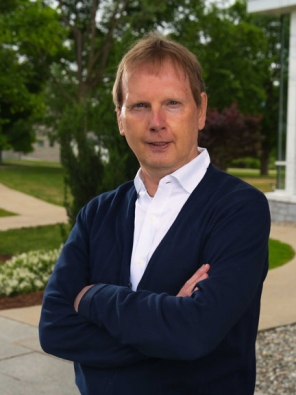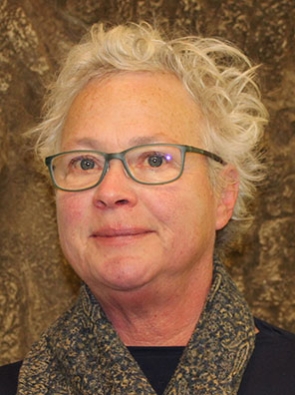Meet the Team
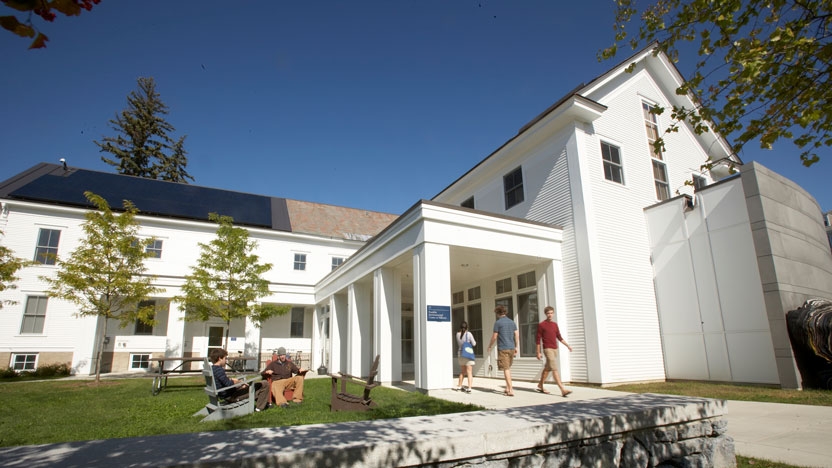
The Sustainability and Environmental Affairs (SEA) team is eager to help you connect and find your unique place in sustainability and climate action.
In collaboration with students, faculty, and staff, our team provides co-curricular learning experiences, skill building, and sustainability initiatives on Middlebury’s campus and beyond.
You can reach out to our team members directly, or connect with us at gogreen@middlebury.edu, through social media: @middsustainability , @middknoll , @middclimateactioncapacity , @middlebury.ecoreps , and @newperennials , or on LinkedIn.
Sustainability and Environmental Affairs
SEA staff focus on sustainability integration, communication, and action through the Sustainability Solutions Lab (SSL), EcoReps, and other collaborative initiatives on campus.
Tara Federoff
she/her
Assistant Director, Communications and Outreach
- Email:
- tfederoff@middlebury.edu
- Tel:
- (802) 443-2536
- Office:
- Franklin Environmental Ctr Hillcrest 111
Janet Wiseman
she/her
Assistant Director, Franklin Environmental Center
- Email:
- jwiseman@middlebury.edu
- Tel:
- (802) 443-5710
- Office:
- Franklin Env Ctr-Hillcrest 120
The Knoll
The Knoll, Middlebury’s student-powered garden, offers opportunities to sink hands in soil, research, and connect with community.
Megan Brakeley
she/her
Associate Director of the Knoll
- Email:
- mbrakeley@middlebury.edu
- Tel:
- (802) 443-5788
- Office:
- Franklin Environmental Ctr Hillcrest 109
- Office Hours:
- Knoll Garden Volunteer Hours - go/knollhours
Climate Action Program
The Climate Action Program (CAP), in deep connection with Middlebury’s Energy2028 educational commitment, offers students, faculty, and staff on-ramps to climate action through their Climate Action Fellowship, events, workshops, and funding and skill building opportunities.
Minna Brown
she/her
Climate Action Program Director
- Email:
- mbbrown@middlebury.edu
- Tel:
- (802) 443-2471
- Office:
- Hillcrest - The Orchard 118
Residents
The residents of Franklin Environmental Center at Hillcrest offer unique expertise, lived experience, and connection to Middlebury students through classes and exposure to a range of environmental perspectives and opportunities.
Carolyn Finney
she/her
Artist-in-Residence, Environmental Affairs
- Email:
- cmfinney@middlebury.edu
- Tel:
- (802) 443-2350
- Office:
- Franklin Env Ctr-Hillcrest 121
- Office Hours:
- Tuesday, 1-3pm, or by appointment (in person and virtual)
Bill McKibben
Schumann Distinguished Scholar
- Email:
- wmckibbe@middlebury.edu
- Tel:
- (802) 443-3489
- Office:
- Franklin Env Ctr-Hillcrest 205
Frank Van Gansbeke
Executive Scholar in Residence
- Email:
- fvangansbek@middlebury.edu
- Tel:
- (802) 443-5932
- Office:
- Axinn 246
Middlebury College Lands
As owner of several thousand acres of land in the Champlain Valley and Green Mountains, Middlebury College is committed to exemplary land stewardship through our Middlebury College Lands program.
Marc Lapin
he/him
Associate Laboratory Professor and College Lands Conservationist
- Email:
- lapin@middlebury.edu
- Tel:
- (802) 443-3239
- Office:
- Franklin Env Ctr-Hillcrest 216
- Office Hours:
- Spring 2026: Friday 9-11 & by appointment
New Perennials
New Perennials offers courses, publications, and programming rooted in common sense, as a respite from an unraveling world, and with the energy and creativity to meet adversity with grace, justice, and gratitude.
Bill Vitek
He/Him
Scholar-in-Residence, Environmental Affairs
- Email:
- wvitek@middlebury.edu
- Tel:
- (802) 443-5586
- Office:
- 23 Adirondack 201
- Office Hours:
- By appointment
Lisa Winkler
Community Program Director
- Email:
- lwinkler@middlebury.edu
- Tel:
- (802) 443-3140
- Office:
- 23 Adirondack 202


